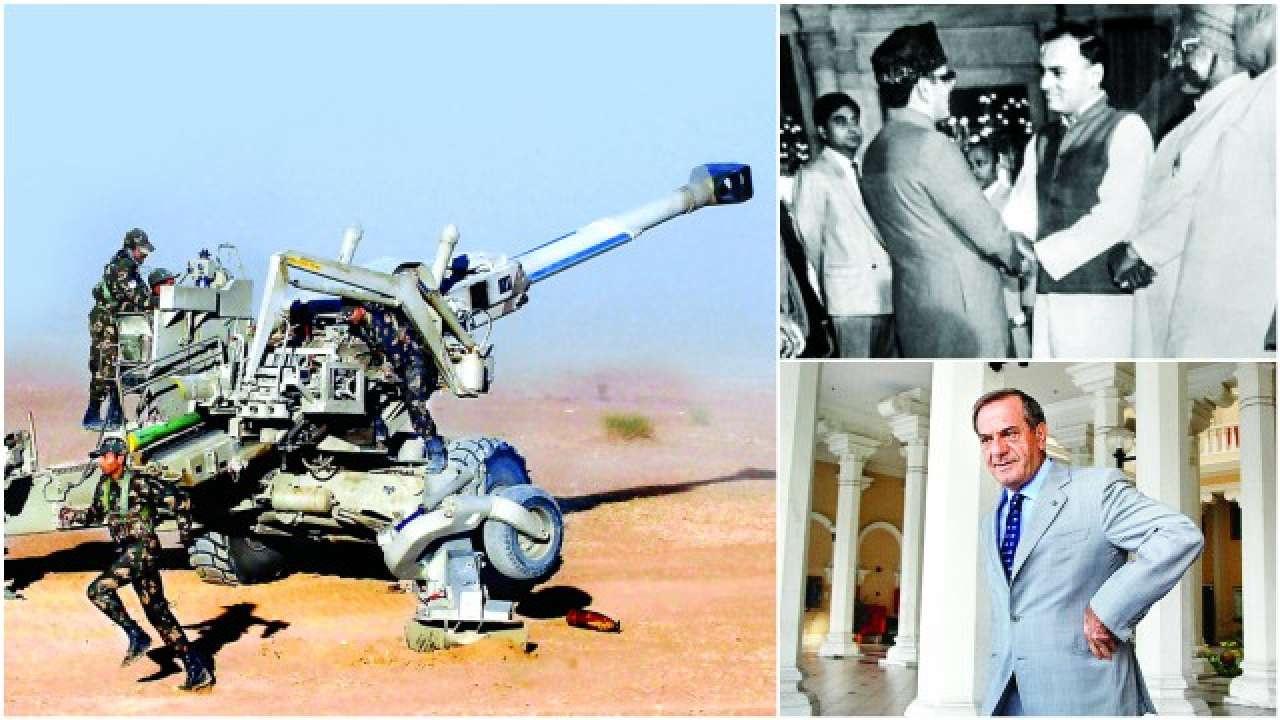Recently CBI was pulled into the TRP scam fiasco raging between the Republic TV and the Mumbai police. The organization had earlier dealt in such cases which had eluded successful conclusion with no accused being punished or penalised. It would be prudent to visit one such case from the past-the Bofors case.
Corruption and scandals are not new to the Indian Inc. Delayed justice, corrupt middlemen involvement, illegal authorship of businesses, and many more issues have always been regarded as the major flaws in the Indian system or rather the superstructure. One such example is the Bofors scandal which became an infamous case involving the Indian and Swedish politicians and dealers. The case lasted for almost a decade and yet, many people still firmly believe that justice was not served and the accused never faced any serious reprimanding action by the judiciary.
AB Bofors, a Swedish arms manufacturer was in contract with the Indian government to supply 400 Howitzer guns of 155 mm for the Indian Army. The Rs. 1,437 crores deal was signed on March 18, 1986, between India and the Swedish company. What seems like a simple contract, turned into havoc which grabbed national and international attentions. On April 16, 1987, a Swedish radio program alleged the Indian leaders of taking huge amounts of money as a kickback to hold on to the deal with AB Bofors. The names that came up to be involved in this scandal included former Prime Minister Rajiv Gandhi, Martin Arbdo, the president of AB Bofors, Win Chadha, agent for various armament manufacturers, and Octavio Quattrocchi, the middleman who represented Snamprogetti, an Italian firm.
On January 22, 1990, the First Investigation Report (FIR) was filed by the Central Bureau of Investigation (CBI) against Win Chadha, Hinduja brothers, and Martin Arbdo for cheating, forgery, and criminal conspiracy. The offenses of bribery, corruption, and criminal conspiracy against the Indian leaders and public servants were omitted.
On October 22, 1999, the very first charge sheet was released against Chadha, Arbdo, Quattrocchi, Bofors Company, and SK Bhatnagar, the defense secretary. Almost a year later, another charge sheet was filed against the Hinduja brothers.
On February 4, 2004, Justice JD Kapoor had discharged the allegations laid against Rajiv Gandhi and made a charge of forgery against AB Bofors under Section 465 of the IPC. Following this on May 31, 2005, Justice RS Sodhi had exempted and repealed the CBI case in the Bofors scam.
On March 4, 2011, CBI special court in Delhi decided to discharge Quattrocchi as they believed it was not fair to spend the hard-earned money of Indian citizens on the refoulment of the accused as already a huge amount of Rs. 250 crores was spent from the public exchequer.
There are other instances like the 2G scam, Aircel Maxis case and the Aarushi Talwar murder case which had tested the mettle of CBI and its independence and hold over the investigation. During the examination of the Coalgate case in 2013, the Supreme Court of India had called the central agency as a “Caged Parrot” of the masters. This had fuelled the debates and discussions on the need for police reforms with respect to the central agency.
The commendable aspect about the agency in the Bofors case was the hard-work, the follow-ups and the challenges faced, trying to make sense of this scam when such high-authoritative names were involved. To this date, the Bofors case remains a mystery as to what had really happened and whether the accused guilty or innocent. Some people whose names never came up remain to be in the shadows of innocence despite being involved in large scale bribery and corruption.
The author is a student member of Amity Centre of Happiness.





